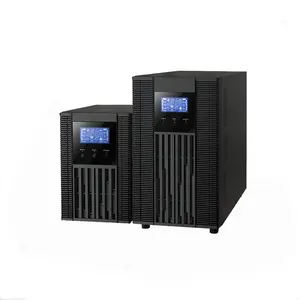Understanding UPS Battery Systems
Uninterruptible Power Supplies (UPS) are critical components in maintaining power consistency and reliability. UPS systems are equipped with batteries that provide emergency power during outages, ensuring that electronic devices continue to operate without interruption. This introduction delves into the intricacies of UPS battery systems, their types, applications, and features.
Types of UPS Batteries
The core of a UPS system is its battery, and there are several types to consider. Valve-Regulated Lead-Acid (VRLA) batteries are commonly used for their maintenance-free operation, while Flooded Cell or Vented Lead-Acid (VLA) batteries are known for their longer lifespan and reliability. Lithium-ion batteries are emerging as a popular choice due to their lightweight, compact size, and efficiency. Each type offers distinct advantages in terms of energy density, life expectancy, and environmental impact.
Applications and Features
UPS batteries serve a broad spectrum of applications, from safeguarding data centers and telecommunications equipment to ensuring the operational continuity of medical and industrial machinery. Key features of these batteries include their ability to provide a stable power supply, resilience against power fluctuations, and the capability to handle varying loads. Advanced batteries come with monitoring systems that provide status updates and health checks, enhancing their reliability and performance.
Materials and Advantages
The materials used in UPS batteries impact their performance and suitability for different environments. For instance, the robust construction of AGM (Absorbed Glass Mat) batteries makes them suitable for harsh conditions. The primary advantage of investing in a reliable UPS battery system is the assurance of protection against data loss and hardware damage during power disruptions. Additionally, these batteries are designed for easy integration with existing power systems, offering a seamless backup solution.
Selection and Maintenance
Selecting the right UPS battery involves considering the power requirements and compatibility with the existing infrastructure. While maintenance needs are minimal for most modern UPS batteries, regular checks and balances are crucial to ensure optimal performance. It is important to follow the manufacturer's guidelines for testing and replacing batteries to maintain the integrity of the power backup system.
Conclusion
In conclusion, UPS battery systems are an indispensable part of modern power management solutions. While UPS battery prices may vary based on type and capacity, the value they add in terms of protection and performance is unparalleled. Prospective buyers are encouraged to assess their power needs carefully and choose a suitable UPS battery system that aligns with their requirements.




































 浙公网安备 33010002000092号
浙公网安备 33010002000092号 浙B2-20120091-4
浙B2-20120091-4